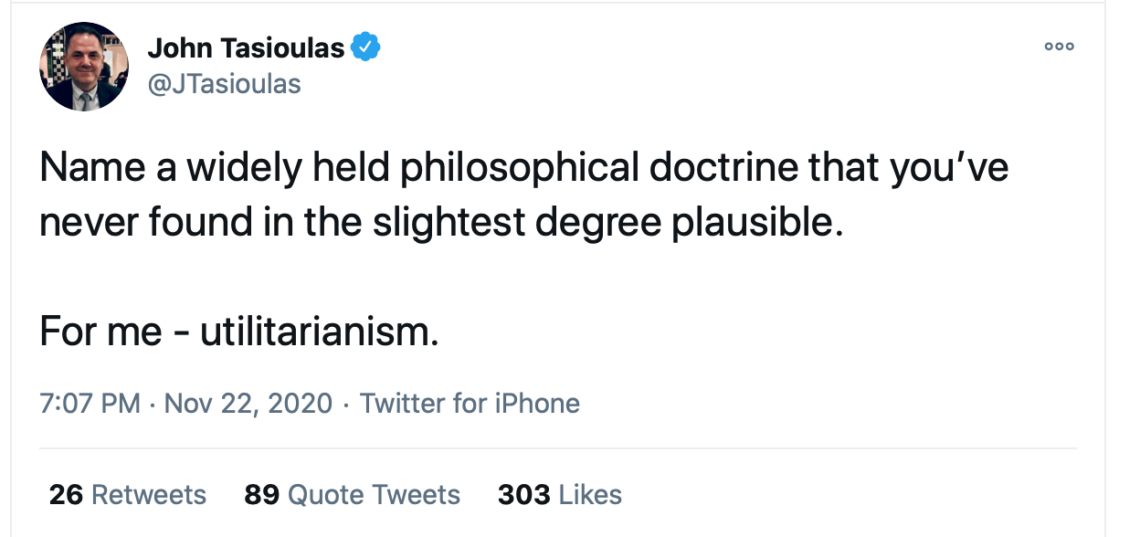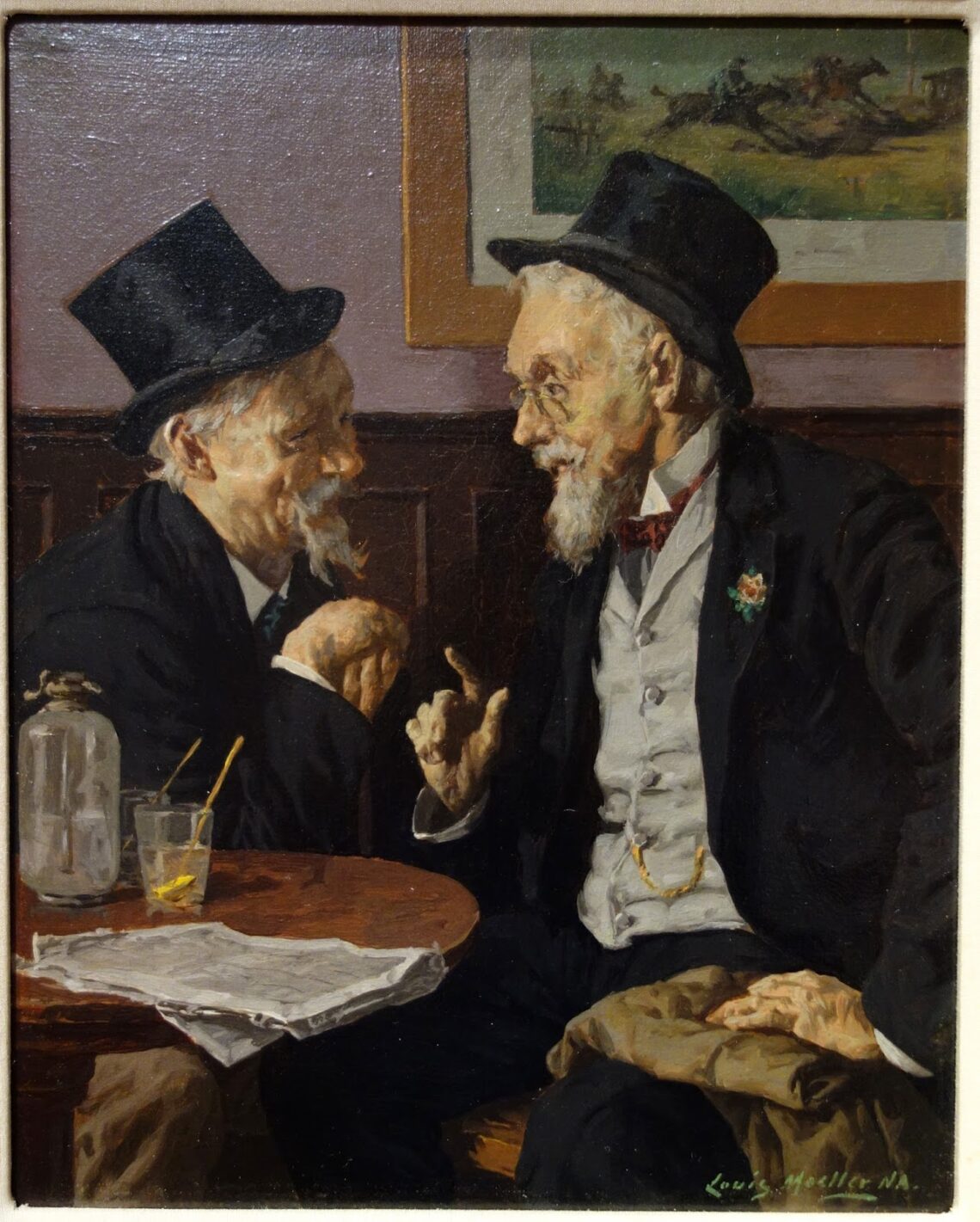According to eliminative materialists, the statements ‘I feel pain’ and ‘I believe that the cat is on the mat’ can be reduced to statements about physical mechanisms of the brain. ‘My C-fibres are firing’ or ‘my B-drive is accepting that the cat is on the mat’ will suffice to replace any reference to mental states. As Eddy Zemach kindly points out, doing so deprives us of any reason to think the reduced statements are true. If one asks, ‘what makes you think your C-fibres are firing,’ what else could the asserter say apart from, ‘well I feel pain’? Same for the B-drive. Hence, one might replace all our mentalistic statements,…
-
-
Names and Doctrines
A recent member of philosophy twitter invited responses to the following: “name a widely held philosophical doctrine that you’ve never found in the slightest degree plausible.” The writer named utilitarianism. Another responder said, ‘philosophy of language.’ Something can be implausible (or plausible) only if it can believed. A doctrine is a statement (or set of statements) with a subject and assertions about it. We have doctrines of various things. One might have a doctrine of what makes actions right or wrong, or a doctrine of the Trinity. To provide a name for something that can be plausible or implausible one must name a doctrine. As far as I can tell,…
-
The Search for Meaning, Truth and Knowledge.
I have been perusing an old book by Simon Blackburn called Spreading the Word. In it, Blackburn has a very helpful little section describing the relationship between mind, language, and the world in the form of a triangle the corners of which are connected to one another by theories. The mind corner is connect to the world by a theory of knowledge and connected to the language corner by a theory of meaning. The world corner is connected to the language corner by a theory of truth. The idea is that one chooses a corner from which to develop theories for the sides. The task then becomes ensuring that one’s corner contains…
-
Language Use and the Existence of God
Natural human language-use entails moral obligations, specifically objective obligations between persons. All of these obligations are routinely broken (see Twitter). These obligations are both objective and social. They depend on being objective and not merely an expression of a particular preference or culture. They also depend on the existence of a social context composed of more than one person. As Nicholas Wolterstorff claims, “speaking is, through and through, a normative engagement.” Wolterstorff suggests three norms and provides examples: (i) speech should be related rightly to the mental state of the speaker. If the speaker asserts something he ought to believe it. If the speaker promises something, he ought to intend to fulfill…
-
From Language to God: An Argument
Children acquire natural languages. How they are capable of doing so is mysterious. A child appears to go from learning a few words and sentences to knowing how to construct infinite sentences in her learned language. Such a mystery provoked a long-lasting debate between empiricists and nativists. Empiricists about language acquisition hold that there is no innate knowledge ‘in the mind’ of a language learner without which the learner could not acquire a natural language. Nativists, by contrast, hold that there must be some innate feature of human minds (beyond the mere dispositional power to learn) that makes language acquisition possible for human beings In order to explain the phenomena…
-
Capacities and Abilities
A capacity is kind of power, but it is not the same as an ability. An ability is a power that an agent has to perform some action. It is “a power to originate changes in the environment.” In contrast, a capacity is “a causal power…an invariable disposition to react to certain determinate changes in the environment in certain determinate ways.” (Van Inwagen, An Essay on Free Will, 10-11). For example, Van Inwagen distinguishes between the capacity to understand and the ability to speak. The distinction lies in the fact that though someone who has the capacity to understand French has no choice over whether or not to understand French sentences…
-
Generous Interpretation – The Bedrock of Good Relations
Relationships only work when we generally impute good motives to the speakers of sentences. Due to the nature of natural human languages, vagueness and ambiguity are inevitable in speech. Every-day talk is not supposed to be precise. But it works well because we assume the best of other people. At least in public discourse in America, this assumption is no longer true. It seems we assume the worst motives in other people (at least of those whose political opinions are not the same as our own). Even when we agree with them, we appear unable to impute good motives to our opponents (let alone when we disagree). One’s policy in…
-
Language and Fellowship
“Aphasia, the loss of language following a brain injury, is devastating, and in severe cases family members may feel that the whole person is lost forever.” (Stephen Pinker, The Language Instinct, 2). Is fellowship possible without language? I don’t mean without the constant presence of language. Two people might not talk for a while but feel close to one another, but what if they never spoke to one another. What if, in the very nature of things, no one spoke? I suppose we could not know what our fellowship would be like. Would we be able to communicate in some way – by looking at each other? Perhaps we really…







